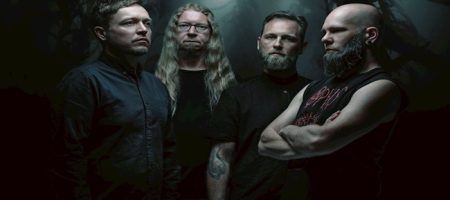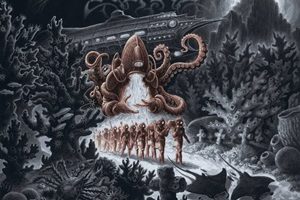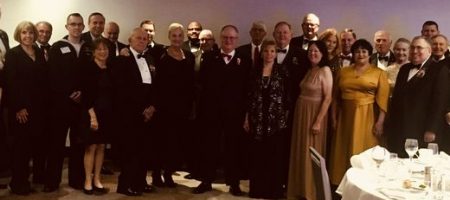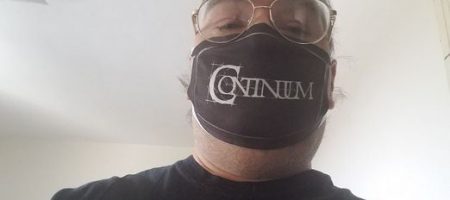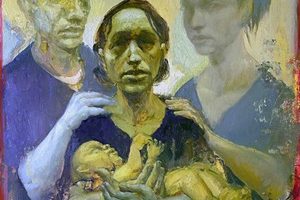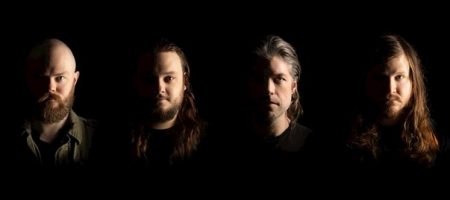Pallbearer – Grief Offerings
Sunday, 31st March 2013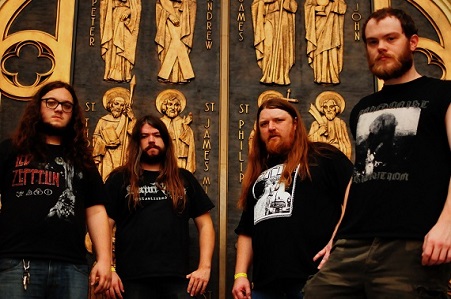
(This content originally appeared on Blistering.com)
On the debut from Little Rock, Arkansas-based Pallbearer Sorrow and Extinction(Profound Lore), there’s a hardened, Southern-toned lurch in full-swing, bred by vintage Sabbath and echoed through the lens of melodic doom ala Candlemass and Solitude Aeturnus. The distinctive flair in which some of these songs (i.e. “ Foreigner,” “Devoid of Redemption,” and “An Offering of Grief”) function is relative to both the band’s deep knowledge of doom, and perhaps their surroundings, where there are no available trends or sonic latchkeys; just the thick air and diabolical sun. It’s yet another entry into the doom field worth clamoring over, and another excellent find by Profound Lore, who are assembling their own nice little doom team comprised of Apostle of Solitude, Yob, Loss, and of course, Pallbearer.
With mounds of live activity of front of them, Pallebearer bassist Joseph Rowland was kind enough to elaborate on all of the above for Blistering, and much more…
Blistering.com: Bring us up to speed on all that has happened since you released the three-song EP and to the release of Sorrow and Extinction.
Joseph Rowland: Ah, this could be quite a long answer so I’ll try to be succinct. We started recording Sorrow and Extinction about four or five months after the demo was recorded, and it took us about a year to get everything just the way we wanted. The studio was several hours away and we had to work at a slow pace of only two-to-three days per month, but it was finally completed last summer. We then struck a deal with Profound Lore Records, which in turn has been very beneficial for everyone, I think. When we started recorded we didn’t have any idea that we would have the opportunity to play the places we have in line for performances, or that our album would be so wide-spread and affect as many people as it has seemed to do. It has been an interesting and a bit of a humbling experience, just because we would have done this no matter what; the music on Sorrow and Extinction was destined to become.
Blistering.com: How did the band come together? It’s not like doom bands pop up from Arkansas every day…
Rowland: There is a long history of unbelievably heavy music in Arkansas, some well known like Rwake and Deadbird, and some overlooked like Shitfire, Seahag, Mulattorus, Circle of the Black Thorn and many others. We are merely carrying on the legacy as we feel it should be, even if our style is somewhat different than what many might perceive as the “Arkansas” sound.
Blistering.com: The North American doom is both large and in quite good shape. Where do you see yourself fitting in?
Rowland: I’m not really sure how to answer this. There are lots of killer American doom metal bands of many varieties and we play a style that we feel befits our vision for the band. We aren’t really aiming to be “American sounding” or “European sounding,” just writing what feels right for us.
Blistering.com: In terms of not only putting the band together, but the first album, what type of obstacles did you run into?
Rowland: There were quite a few, primarily finding the time to get everything finished on the recording. We all lived several hours away from Chuck’s [Schaaf, drums] studio at the time and it was difficult to coordinate the recording sessions to get everything just right. Plus, we could have been better prepared to approach the album from a professional production standpoint. In the early sessions we probably spent a little too much time getting wasted, which in itself was a time waster, as we had to go back and re-track a few things that didn’t quite turn out the way we planned while under the influence.
Blistering.com: Clearly, the album title is not of the sunny and/or happy variety. What type of themes did you explore on Sorrow and Extinction?
Rowland: I don’t want to give away too much of the sense of mystery I think the album distills, but it deals with the struggle through life on the journey toward the inevitable end.
Blistering.com: One of the defining aspects of the album is Brett’s [Campbell] vocals. They fit comfortably within the music, but stand out at the same time. Do you think his vocals give you an edge over most doom bands?
Rowland: Yeah, well I don’t really see music as a competition. We are going to do what we feel works best. Of course, I feel Brett is a skilled singer and has a unique voice that works well for what we’re trying to accomplish.
Blistering.com: The answer probably varies for some, but to you, what makes a good doom song?
Rowland: It really depends on the band I think. There are a lot of different takes on “doom” but for me, I like to hear a lot of melody, and originality, not just completely biting the style of another band, or making an obvious attempt at combining “band a” with “band b.” I don’t think there’s enough originality out there in doom metal. So, something that strikes me as original and sincere, that’s at least a starting point for a good doom song.
Blistering.com: What type of approach do you take to live shows? Do you find it easy or hard to play in and around your locale?
Rowland: Playing live is usually a great experience. We generally have a pretty basic approach; just try to maximize the tone and heaviness of the music. I think the true spirit of the music is conveyed best in the live setting, and we tried to capture that for that album, but it’s still much more direct and primal in the live performance. Because of the distance that Chuck lives away from the rest of us, we focus more on doing performances on a national scale rather than local these days.
Blistering.com: Are there any doom or traditional metal bands you’d really like to play with?
Rowland: Just off the top of my head, I’d say Saint Vitus, My Dying Bride, and Cathedral if they weren’t disbanding. We actually enjoy playing with bands of other styles more than doom metal bands more often than not. That variance usually makes for a more interesting experience in my opinion.
Blistering.com: Finally, what’s on tap for 2012?
Rowland: We plan on playing as many live performances as we can, around the US, and hopefully elsewhere, and we have already started conceiving bits and pieces of what may become the second full length. When the time is right, we will know what compositions will be right for that. We’re essentially always writing and reshaping ideas in a constant evolution towards the central goal of Pallbearer.











